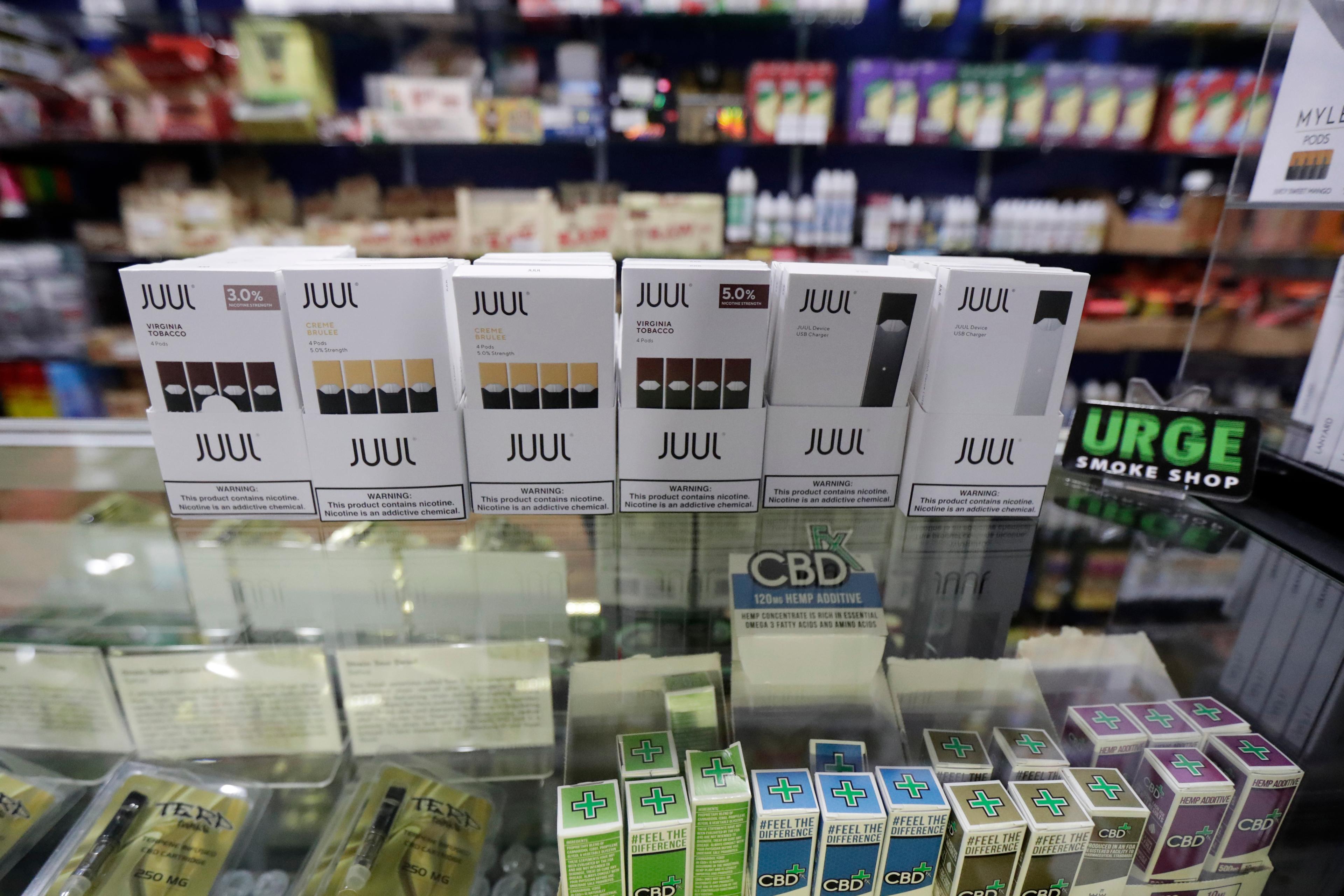
Updated 9:40 p.m.
Colorado residents may get a chance to vote to raise tobacco taxes this fall, as a way to put the brakes on the nation’s worst teen vaping rate.
Backers of the citizens' initiative delivered paperwork to the state’s Legislative Council late Friday. If approved the proposal would raise hundreds of millions of dollars annually for tobacco prevention and cessation, and the bulk going to early childhood education.
“Research shows that the most effective way to address youth use of tobacco and nicotine vaping products is to put taxes on them,” said Jake Williams, executive director of Healthier Colorado, a public health advocacy group that’s working with a coalition of other health and education organizations on the proposal. “We look forward to doing that here in Colorado in addition to other measures in the legislature this year.”
The coalition filed 18 measures, with a range of proposed taxes, and will settle later on which one they’ll gather signatures for in order to qualify for the November ballot.
The measure with the lowest tax proposes a $1.20 tax on a pack of cigarettes, and an equivalent amount applied to other tobacco products and vaping products. It would raise $30 million a year for tobacco education programs and another $15 million to backfill the recent decrease in tax revenue for existing recipients. Tobacco education programs in Colorado are now funded by tobacco taxes, which have been falling in recent years as tobacco consumption has dropped.
The remainder of the money raised would go to preschool education, a top priority of Gov. Jared Polis.
The proposal with the highest tax would assess $2.60 on a pack of cigarettes, and an equivalent sum for other tobacco products and vaping products. It would raise $35 million a year for tobacco education programs, $15 million a year to backfill lost tobacco tax money, with the rest going to preschool.
“At the highest levels the revenue would provide enough to give every single four-year-old in Colorado the chance at free preschool, with a minimum of 16 hours per week,” Williams said.
The initiative will likely face strong opposition from the tobacco industry, as well as convenience stores, vape shops and some consumers who vape.
“If this ballot initiative was actually about health and not just a money grab, activists would focus on the products that are actually killing people throughout Colorado -- combustible tobacco products,” said Greg Conley, president of the American Vaping Association. “As a recent study from the National Bureau of Research indicates, taxes on vaping products act to discourage adult smokers from quitting, which is the exact opposite of what the goal of a rational tobacco tax policy should be.”
Polis and backers of the idea offered a similar proposal last year that would have raised $300 million annually. But it failed before ever reaching the governor’s desk. Big tobacco companies, including vape giant JUUL, spent heavily on social media ads in the days after the measure was first proposed.
Supporters say Colorado’s tax rate on cigarettes is relatively low, ranking 40th in the country. And the state also doesn’t impose any excise taxes on vaping products, something the initiative would aim to change.
Critics have argued such a tax increase would only encourage smuggling and online sales, and harm small retailers and local tax bases.
If it makes the ballot, the fight would echo a similar battle in 2016. That year, Amendment 72 proposed more than tripling the tax on a pack of cigarettes to $2.59. It would have increased taxes on other tobacco products by 22 percent. Tobacco companies poured $16 million into defeating the measure, far outpacing backers of the proposal. That ballot measure lost by a six-point margin.
That was before teen vaping use began sharply spiking in Colorado and the U.S. It was also before a vaping-related lung illness caused more than 50 deaths and two thousand hospitalizations nationally.
Backers think this time the result could be different. “We're optimistic that we're going to be able to pass this tax even though we certainly anticipate the tobacco industry spending millions against the measure just like they've done before,” Williams said.
Colorado tops the nation in teen vaping, according to a survey released by the CDC in 2018. A quarter of Colorado students said they currently used an electronic vaping product — double the national average. Almost 6 percent said they used them frequently.
The process has several steps to go before backers can start collecting signatures. After an initiative is filed with the Legislative Council, a review and comment hearing is held. Then it will be sent to the state’s Title Board. Once the board sets the title, then it is filed with the Secretary of State’s Office.









